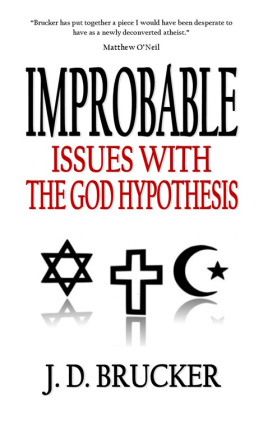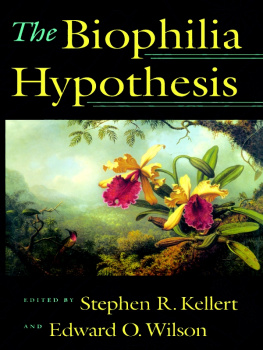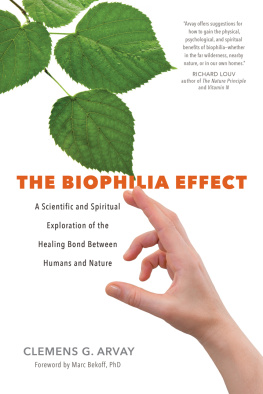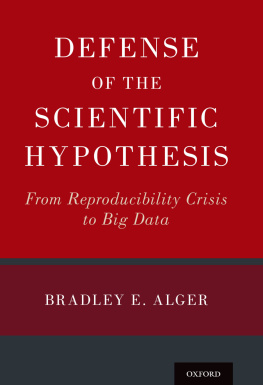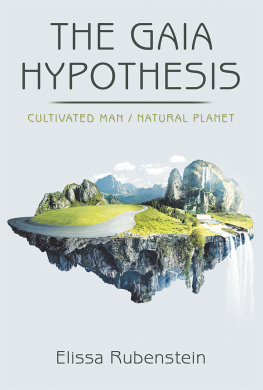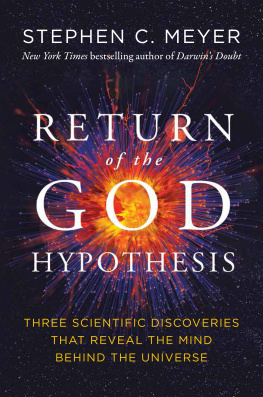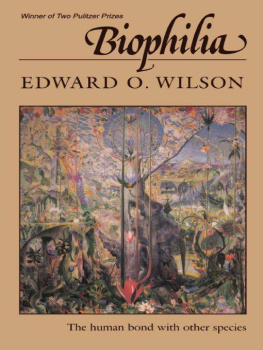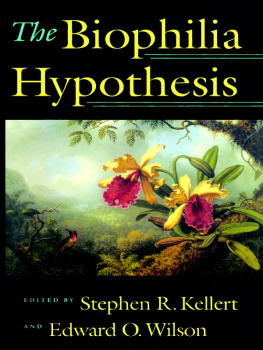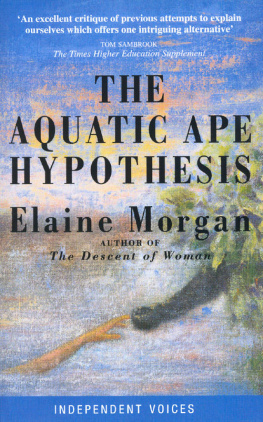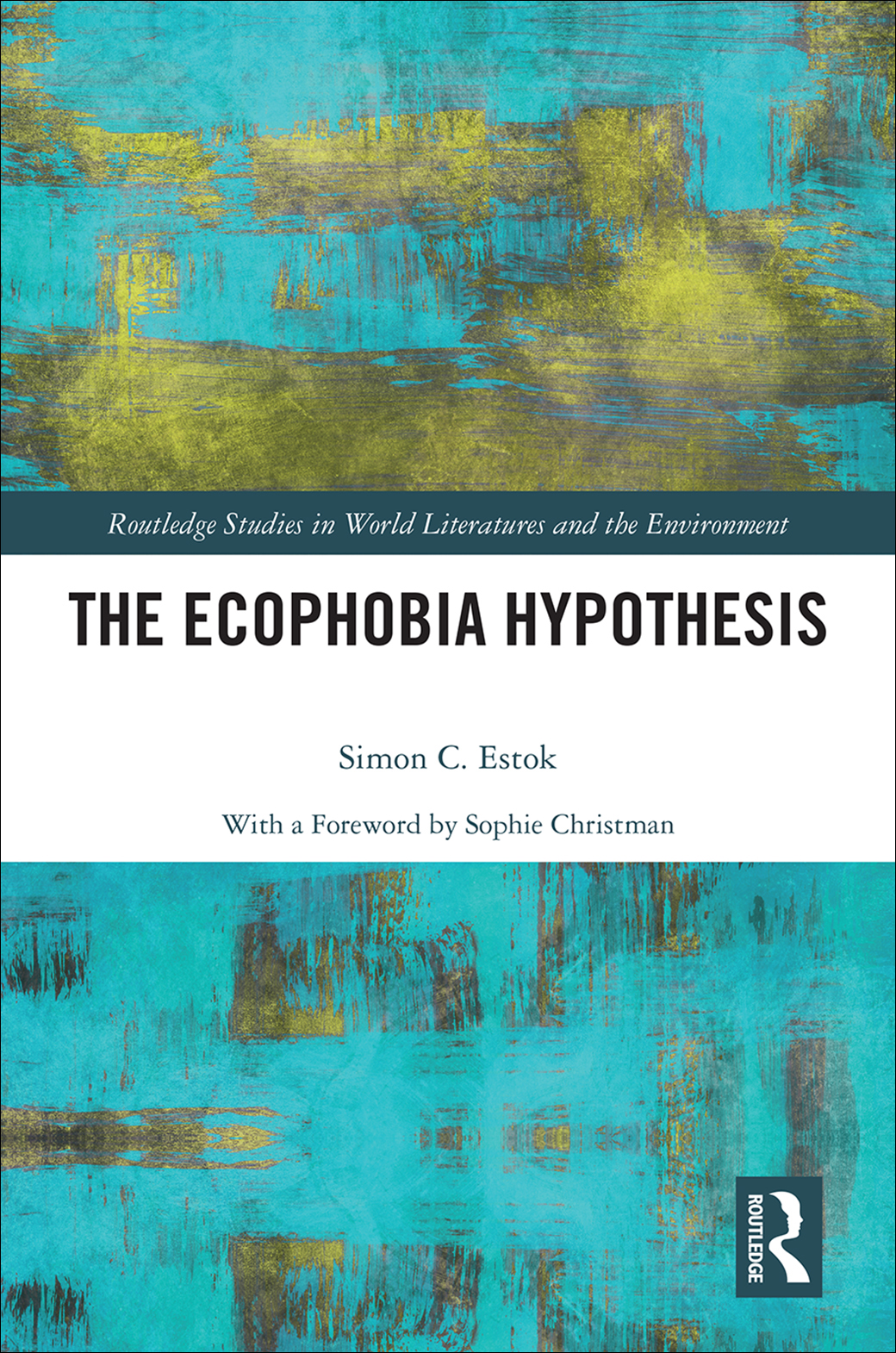Contents
The Ecophobia Hypothesis
The Ecophobia Hypothesis grows out of the sense that while the theory of biophilia has productively addressed ideal human affinities with nature, the capacity of the biophilia hypothesis as an explanatory model of human/environment relations is limited. The biophilia hypothesis cannot adequately account for the kinds of things that are going on in the world, things so extraordinary that we are increasingly coming to understand the current age as the Anthropocene. Building on the usefulness of the biophilia hypothesis, this book argues that biophilia exists on a broader spectrum that has not been adequately theorized. The Ecophobia Hypothesis claims that in order to contextualize biophilia (literally, the love of life) and the spectrum on which it sits, it is necessary to theorize how very un-philic human uses of the natural world are. This volume offers a rich tapestry of connected, comparative discussions about the new material turn and the urgent need to address the agency of genes, about the complexities of 21st century representations of ecophobia, and about how imagining terror interpenetrates the imagining of an increasingly oppositional natural environment. Furthermore, this book proposes that ecophobia is one root cause that explains why ecomediaa veritably thriving industryis having so little measurable impact in transforming our adaptive capacities. The ecophobia hypothesis offers an equation that determines the variable spectrums of the Anthropocene by measuring the ecophobic implications and inequalities of speciesism and the entanglement of environmental ethics with the writing of literary madness and pain. This work also investigates how current ecophobic perspectives systemically institutionalize the infrastructures of industrial agriculture and waste management. This is a book about revealing ecophobia and prompting transformational change.
Simon C. Estok is a Senior Fellow and Full Professor at South Koreas oldest university, Sungkyunkwan University (established in 1398), where he teaches literary theory, ecocriticism, and Shakespearean literature. He is a recipient of the Shanghai Metropolitan Government Oriental Scholar Award () (20152018) at the Research Center for Comparative Literature and World Literatures at Shanghai Normal University. His award-winning book Ecocriticism and Shakespeare: Reading Ecophobia appeared in 2011 (reprinted 2014), and he is the coeditor of a book entitled Landscape, Seascape, and the Eco-Spatial Imagination (Routledge, 2016). Estok also coedited International Perspectives in Feminist Ecocriticism (Routledge, 2013) and East Asian Ecocriticisms (Macmillan, 2013), and has published extensively on ecocriticism and Shakespeare in such journals as PMLA, Mosaic, Configurations, English Studies in Canada, Concentric, and Neohelicon. Estok received his MA and PhD in English Literature from the University of Alberta.
Routledge Studies in World Literatures and the Environment
1 Captivity Literature and the Environment
Nineteenth-Century American Cross-Cultural Collaborations
Kyhl D. Lyndgaard
2 Ecogothic in Nineteenth-Century American Literature
Edited by Dawn Keetley and Matthew Wynn Sivils
3 The Ecophobia Hypothesis
Simon C. Estok
With a Foreword by Sophie Christman
The Ecophobia Hypothesis
Simon C. Estok
WITH A FOREWORD BY SOPHIE CHRISTMAN

First published 2018
by Routledge
711 Third Avenue, New York, NY 10017
and by Routledge
2 Park Square, Milton Park, Abingdon, Oxon OX14 4RN
Routledge is an imprint of the Taylor & Francis Group, an informa business
2018 Taylor & Francis
The right of Simon C. Estok to be identified as author of this work has been asserted by him in accordance with sections 77 and 78 of the Copyright, Designs and Patents Act 1988.
All rights reserved. No part of this book may be reprinted or reproduced or utilised in any form or by any electronic, mechanical, or other means, now known or hereafter invented, including photocopying and recording, or in any information storage or retrieval system, without permission in writing from the publishers.
Trademark notice: Product or corporate names may be trademarks or registered trademarks, and are used only for identification and explanation without intent to infringe.
Library of Congress Cataloging-in-Publication Data
Names: Estok, Simon C., author.
Title: The ecophobia hypothesis / by Simon C. Estok.
Description: New York; London: Routledge, 2018. | Series: Routledge studies in world literatures and the environment;
3Identifiers: LCCN 2018007822
Subjects: LCSH: Human ecology in literature. | Ecology in literature. | NatureEffect of human beings on.
Classification: LCC PN56.H76 E88 2018 | DDC 809/.9336dc23
LC record available at https://lccn.loc.gov/2018007822
ISBN: 978-1-138-50205-5 (hbk)
ISBN: 978-1-315-14468-9 (ebk)
Typeset in Sabon
by codeMantra
To the memory of my mother.
Contents
Sophie Christman
Sophie Christman
People acquire phobias, evolutionary biologist E.O. Wilson observed, to abrupt and intractable aversions, to the objects and circumstances that threaten humanity in natural environments (The Diversity of Life 351). This often overlooked observation, conceptualized by an evolutionary biologist whose canon launched the Western corpus of biodiversity theories, locates an important problem unique to humanitys current climate change momentour phobia of nature.
How many of us have jumped with fear at the sight of a nearby hairy spider, become alarmed by a slithering snake, or panicked at the clap of a lightning bolt? Why have we conditioned ourselves, as 21st century hominids, to dread the Earths daily descent into darkness, avoiding night by flipping the infrastructural switch of artificial light? In modernitys modern moment, how has our all-consuming fear of nature created the collective human condition that Simon C. Estok terms the trauma of ecophobia?
The fear of nature, according to the Mayo Clinic, is a condition that exists in its own category as a specific psychological phobia. Specific phobias, claim Lisa M. Shin and Israel Liberzon, are marked by excessive, unreasonable and persistent fear of specific objects or situations (179). Estoks The Ecophobia Hypothesis registers these specific phobic instances of irrational fear and chronic aversion to nature whose cumulative effects have abetted the now irreversible course of global planetary warming. This fear of nature, Estok claims, has spurred a maladaptive antagonism between humans and their environments, the seriousness of which is evidenced by our human legacythe Anthropocene (1).
Estok begins his theorization of ecophobia by extending Serenella Iovino and Serpil Oppermanns foundational work on material ecocriticisms: in short, he claims that ecophobia is undergirded by material and genetic components. The genesis for his hypothesis derives from Wilsons 1984 theory of biophilia, defined as the innate tendency to focus on life and lifelike processes (Biophilia 1). The biophilic impulse, Wilson suggests, assumes a human urge to affiliate with other forms of life (85). The incubi of this theory, arguing an innate human conservation ethic that is affiliative with the natural environment, followed the advent of the American environmental movement led by biologist Rachel Carsons canonic


